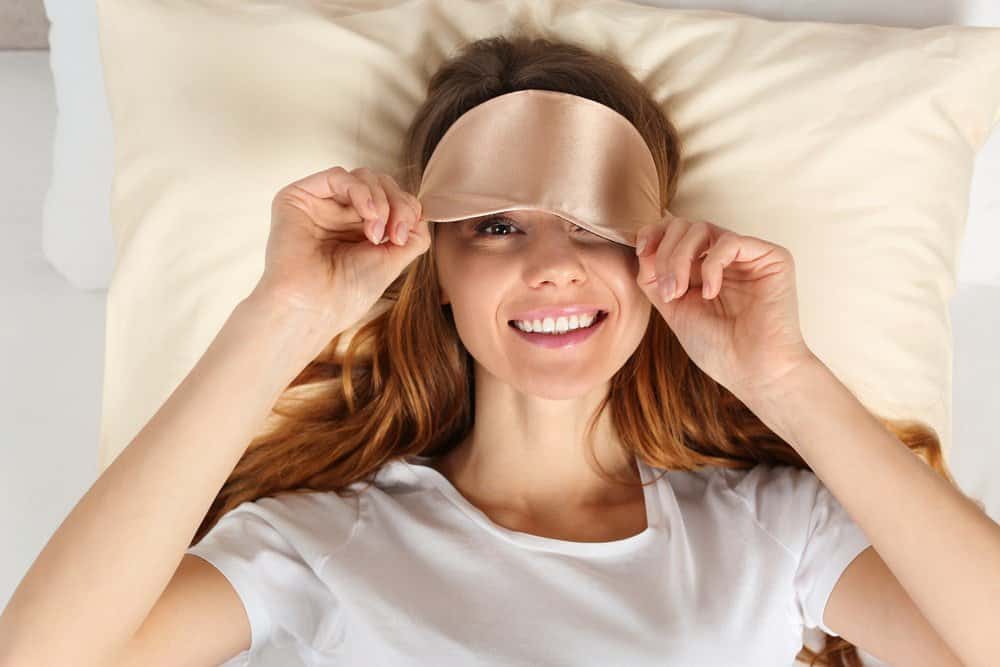
How does sleep improve concentration and productivity? Are sleep and performance correlated?
Experts agree that sleep impacts productivity, but no study has shown that if one gets x hours of sleep, they will be x times more productive.
However, based on people’s experiences, sleep deprivation impacts cognitive performance. In particular, lack of sleep leads to poor working memory and focus.
In contrast, people with enough sleep have crystal-clear thought processes, sharp memory, and rejuvenated energy.
Some people believe that if there is a provision for an afternoon nap in offices, productivity will improve by leaps and bounds, as work without rest leads to irritability, uneasiness, and fatigue.
Relationship Between Sleep and Performance
The amount of sleep people have can either enhance or weaken their problem-solving skills.
Whether you are studying math, honing your teaching skills, or perfecting your golf swing, sleep helps fortify your problem-solving abilities.
Problem-solving skills are most important in the work setting. Some of these skills include:
- Smart decision-making
- Effective communication
- Creative thinking skills
- Analytical thinking
- Listening skills
Sleep and Work Output
Short naps can improve work output. An article published by Harvard Men’s Health Watch suggests that short naps can improve memory, learning, and problem-solving skills.
If a short afternoon nap can help improve work output, how much more does complete sleep at night impact employees’ productivity?
When people sleep, their pulse and breathing are steady and slow, making their bodies rested and ready for work the following day.
Sleep and Brain Activity
At the same time, during sleep, your brain does some activities to process the events that happened throughout the day. It sorts information and solves problems.
Health.harvard.edu reports that dreaming can activate and organize recently learned materials. In turn, this improves memory and performance.
Sleep and Overall Health
Want to sleep better? Dr Breus knows everything about it – watch his FREE Masterclass to learn more!
The importance of sleep for health cannot be understated. It is the time when your body heals and repairs itself to prepare itself for a new day and responsibilities.
Sleep also impacts your immune system. If you lack sleep, your body becomes prone to illnesses.
Also, with enough sleep, the body’s inflammatory activity is lessened. Thus, you help your body experience less pain and discomfort when you give it enough rest via sleep.
Sleep also plays a vital role in mental wellbeing. Many processes that occur during sleep help promote brain activity.
Sleep allows your brain to form pathways that let you create and learn new memories.
Brain functions, such as neuron connection and communication, are also inhibited by lack of sleep.
Sleep and Productivity: Sleep Facts

Here are some important facts about sleep.
According to a study conducted in Japan, sleep health is associated with presenteeism. Presenteeism is a situation where an employee has come to work but cannot work properly or not working at all.
The study concludes that presenteeism is associated with the following:
- Use of sleep medicine
- Sleep disturbance
- Daytime dysfunction
- Subjective sleep quality
In addition, the study suggests that employees must practice good sleep hygiene, which is associated with workers’ productivity.
Sleep hygiene refers to environmental factors and habits that can be adjusted to help a person have a good night’s sleep.
Sleep problems are often caused by unhealthy sleep habits that have been reinforced through the years.
Sleepiness in the workplace decreases productivity by about 6.1%, a figure that accounts for a decreased productivity cost that averages about $3,156 per employee.
Sleep and Focus
Concentration difficulty is the state where there is decreased ability to focus your thoughts.
Concentration difficulty can be caused by:
- Use of alcohol or drugs
- Cognitive or psychological problems
- Sleep disorders
Concentration difficulty may be related to:
- Inattention
- Overactivity
- Intrusive thoughts or concerns
- Impulsiveness
- Difficulty staying awake
According to another study, men with sleep difficulty have poorer physical, mental, and self-rated health. Also, men who lack sleep have difficulty in concentration and remembering.
How Does Sleep Improve Concentration and Productivity?

Always remember that there is no substitute for sleep. Consider sleep as your natural spa.
Sleep is the only thing that relaxes both the body and mind naturally. The muscles, body movements, and physiological activities are all reduced during sleep.
People have other ways of relaxing the body and the mind, such as body spa and meditation, but none of those are more convenient and efficient than sleep.
Some yoga techniques help persons to achieve sleep. However, it does not give them a full rest because somehow, they still remain conscious in the process.
Thus, there is really no substitute for natural sleep.
A few hours of uninterrupted sleep works wonders for the body and reinvigorates the whole system. Sleep is free, does not need special equipment, and is nature’s way of rebuilding worn-out tissues.
Why do we say it is the best thing for the body? When we were little children, even when we couldn’t understand what our parents were saying, we slept whenever we were tired.
Hence, sleep is a natural phenomenon that has worked for people over the years.
Sleep for Productivity
When people do not sleep or lack sleep, their body stops performing appropriately. People need six to eight hours of sleep daily to achieve full rest.
Like a computer browser that tires and slows down, your body halts to a stop when you do not sleep.
Cognitive functions also suffer due to lack of sleep. Because your brain is exhausted, working with heavy machinery will be pretty much dangerous for you.
That is because you are susceptible to making mistakes.
It is a common experience that people who are achievers get the minimal amount of sleep they need (six to eight hours per night on average).
They achieve what they need to achieve in eight hours of work per day, leaving a good amount of time for leisure.
Sleep for Concentration
At the same time, getting enough hours of quality sleep fosters concentration and attention to whatever one is doing. This is a prerequisite for learning.
Sleep also fosters numerous other areas of thinking, including judgment, emotional processing, creativity, problem-solving, and memory.
How Does Sleep Improve Concentration and Productivity: Conclusion
Want to learn how Lucid Dreaming can help with your sleep and health? Charlie Morley knows all about it -watch his FREE Masterclass available now!
It is a must for people to have proper sleep for proper health and efficient work. It is the best way to regain your energy and repair the damage caused by mental fatigue and hard work.
Thus, less sleep results in damage to the body and mind.
So, how does sleep improve concentration and productivity? It is by rejuvenating, repairing, and strengthening the body to prepare it for the next day’s work.
Related Posts:
Mindvalley Membership – Is It Worth It? (my personal experience)
Can Hypnosis Help With Procrastination? (Productivity Hypnosis For Fast Results)
The Importance Of Focus For Success and How To Make It Happen!
Which Sleep Gifts Are Best for Your Back (11 Top Rated Gift Ideas)






